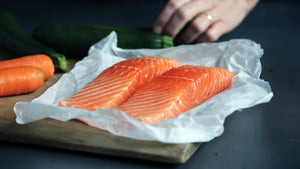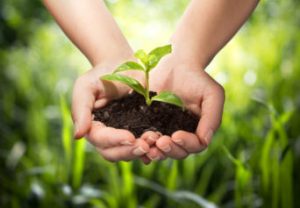How is organic farming better for the environment?

As June 5th is World Environment Day and June 8th is World Oceans Day, it’s important to consider how our actions affect our planet, how is organic farming better for the environment? What can you do to help?
You may already be aware that marine life produces around 70% of oxygen in the Earth’s atmosphere and plays a key role in managing the climate. Needless to say, protecting and preserving our oceans is essential.
According to the WWF, over 80% of marine pollution is caused by land-based activities such as discarded plastics, oil and run-off from pesticides and fertilisers used in farming. This pollution wreaks havoc on ecosystems and causes problems throughout the food chain. Not only are habitats disrupted and completely destroyed, marine life that makes its way to our plates ingests these harmful chemicals, meaning we ingest them too.
Overfishing is another major threat to the world’s oceans. 53% of fisheries in the world are overexploited, causing populations of fish to decline. In order to prevent the world’s fisheries collapsing, sustainable fishing methods needs to be implemented. Allowing fish to maintain their populations and reducing practices that result in bycatch can help marine life thrive.
Organic farming strives to be more earth-friendly, adopting practices that reduce negative impacts. We use fewer chemical pesticides and fertilisers and rely on alternatives to pollutive chemicals, including crop rotation, composting and green manure. As a result, less chemical run-off ends up in the oceans.
Also, organic farmers are committed to sustainable food production and aim to work alongside nature rather than against it. Our organic fish are farmed and produced sustainably to minimise damage to the environment and support the world’s fisheries.
By choosing organic produce, you’re supporting our planet. Find out more about the benefits of choosing organic.
- Tags: Organic Farming
- Graig Farm





